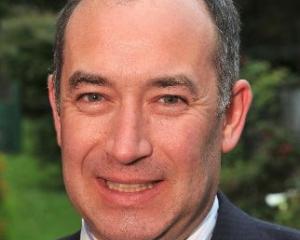At this year's local body election, the Forsyth Barr Stadium will, no doubt, be sitting high on the list of matters voters will consider when they make decisions about the candidate they choose.
But this election is not the first time the matter has been front and centre in the minds of voters.
One claim doing the rounds of anti-stadium bloggers is that Dunedin voters did not know the level of ratepayer input for the Forsyth Barr Stadium before the last local body elections, in 2007.
At that election, councillors who had voted against the stadium were either voted out of office by electors, or retained their seats by a slim margin.
That has been used by some councillors as an argument for continuing their support for the project.
While there have been changes since the last election - the cost of the facility, for instance, has risen from $188 million to $198 million - voters were, or should have been, well aware they would be paying for the stadium.
In January 2007, documents leaked to the Otago Daily Times showed the Carisbrook Stadium Trust could need as much as $65 million from the Dunedin City Council.
When the trust unveiled its project in February that year, it said it would require $85 million from city council ratepayers, $20 million more than expected at the time, and that the Otago Regional Council would be asked for at least $30 million.
In March 2007, the city council decided its contribution, if the stadium went ahead, would be $91.4 million, the extra $6.4 million for a capital maintenance fund for the building.
In July 2007, three months before that year's local body elections, Mayor Peter Chin announced no final decision would be made on the stadium before the election, instantly making the issue a political football.
"It will give the community the opportunity to use it as a platform in making their decision," he said then.
"If we've got a public mandate, only time will tell."
Whether the mandate Mr Chin and his fellow councillors got was a true reflection of the city's views on the stadium is a matter for debate, but the mayor's victory was decisive.
But with the stadium no less of a flash-point issue than it was in 2007, and with a vast amount of further information on the project having been made public, it remains to be seen how voters will repay councillors for their support, or opposition, in October's local body elections.







